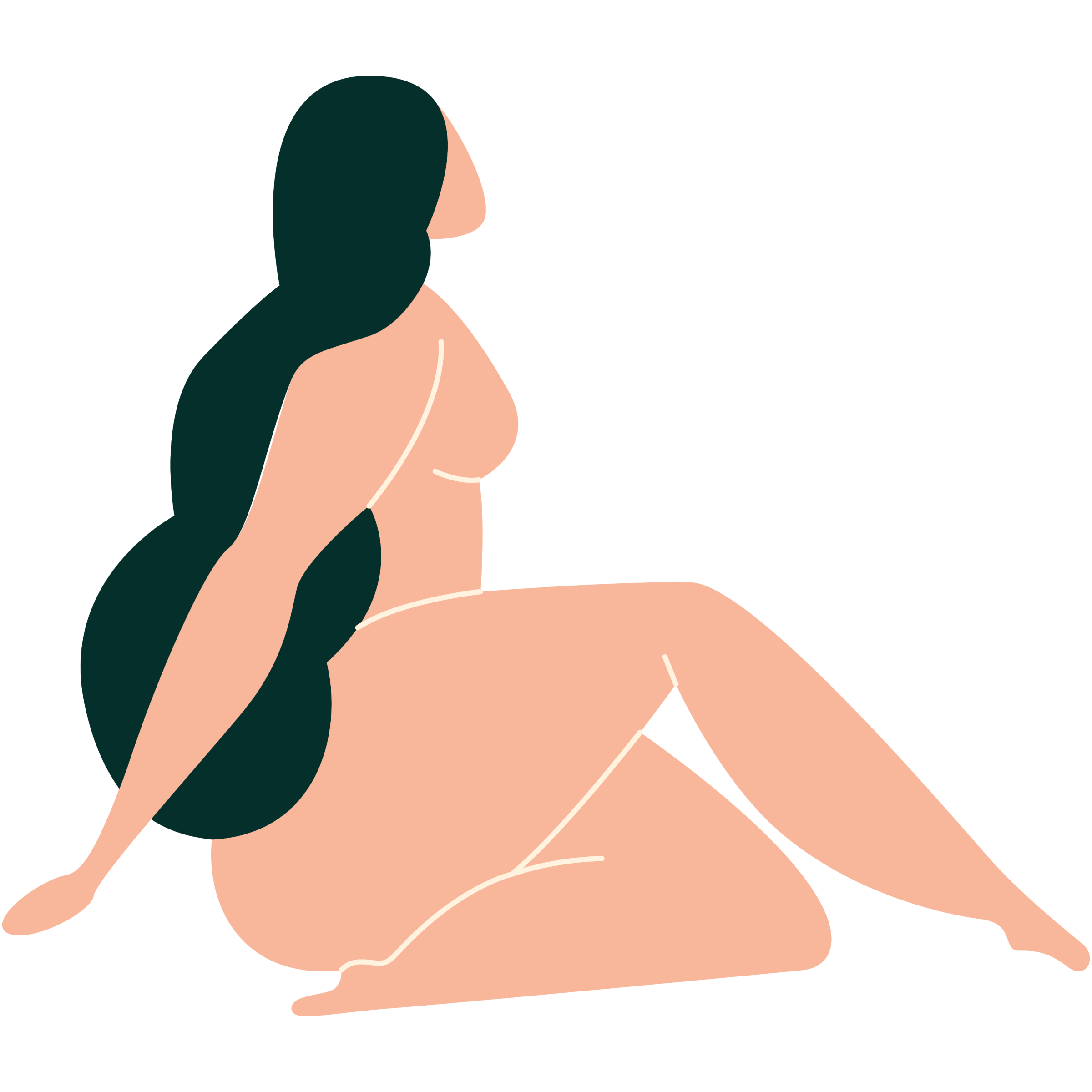
Body
Get to know your body through a better understanding of your anatomy and find the answers to some of your most common questions.

“You look amazing! You’ve lost so much weight.”
“You’ve really let yourself go.”
“You should choose clothes that fit your body shape better.”
If you’re an Arab woman, you’re probably familiar with the anxiety that comes with attending family weddings or social gatherings. These events often expose us to a barrage of unsolicited comments about our bodies. It seems like everyone, from well-meaning aunties to complete strangers, feels entitled to offer opinions on how much weight we’ve lost or gained.
Even beyond personal encounters, these discussions extend to our online experiences. Scrolling through Instagram, we’re bombarded with advertisements for weight-loss programs and celebrities and influencers endorsing various cleanses and teas. These constant reminders and societal pressures surrounding our bodies can feel overwhelming – so if it sometimes feels like they’ve gotten the best of you, you’re not alone.
Women have been programmed from a very young age to believe that a certain body type is better than others. This is the reality of diet culture, a system of beliefs that idolizes thinness and equates it with health and moral virtue. Indeed, we were taught to base our self-worth on impossible and ever-shifting standards of beauty, all to sell us more products and content.
Somewhere along the line, we internalized these thoughts. We look in the mirror and we hate what we see. We hate the scar that brought life to this world, the tummy that made meals with friends possible, and the wrinkles that came from laughter.
Even when the outside voices quiet down, our internal critic never does.
Living in a society where body shaming, food guilt, and a relentless pursuit of the "perfect" body are normalized and often encouraged creates a distorted self-image and an unhealthy relationship with food and exercise for many women.
The constant bombardment of these messages can create psychological and physiological habits and feelings for many women.
1. Psychological Impact
The diet industry's messaging can lead to guilt and shame around eating, creating a fraught relationship with food. The fear of gaining weight can lead to anxiety, depression, and in severe cases, eating disorders such as anorexia, bulimia, or binge eating disorder.
2. Physiological Impact
Diet culture's impact also extends to our bodies. We have not been designed, as humans, to undergo continuous cycles of weight loss and gain, common in what’s called 'yo-yo dieting'. This kind of dieting can lead to serious health complications such as metabolic slowdown, hormonal imbalances, weakened immunity, and increased risk of cardiovascular diseases.
Furthermore, diet culture encourages women to ignore their internal cues of hunger and satiety, disrupting their relationship with their bodies and leading to a disconnection from their physical needs.
But what if there was another way? What if you looked at yourself in the mirror one day and were okay with what you saw?
The journey to loving (or even just liking) ourselves and our bodies is not easy, but it’s one we’re committed to.
Here are some practices that helped us – and might help you – to break away from diet culture and reconnect with what is most natural and beautiful about our bodies.
Imagine telling someone you love that they have the ugliest thighs you’ve ever seen or that they’ll never find love because they’re fat. If you can’t imagine saying it to a friend, stop saying it to yourself.
Sometimes, it’s hard for us to suddenly shift from thinking that we have an ugly stomach to thinking that we have the most beautiful stomach on the planet.
Instead, we invite you to practice neutral thoughts like “this is a normal, human stomach” until you’re ready to move to a more positive thought.
Listen to your body. When it’s hungry, feed it. Ignoring your body’s cues will only make you overeat later. Savor and enjoy your meals, and when you start to feel full, stop before you’re uncomfortable.
If you hear a friend or a family member commenting on someone’s weight, don’t ignore it. Start a conversation about it and invite them to examine their biases and how it affects others.
The next time you think about your body critically, remember who benefits from your self-doubt. Which industries are profiting from your desire to change your body?
When we are confident and grounded in our own bodies, there's nothing we can't do.
Did you find the answer you were looking for? Is there something we missed? What did you think of this resource? We want to hear from you.
